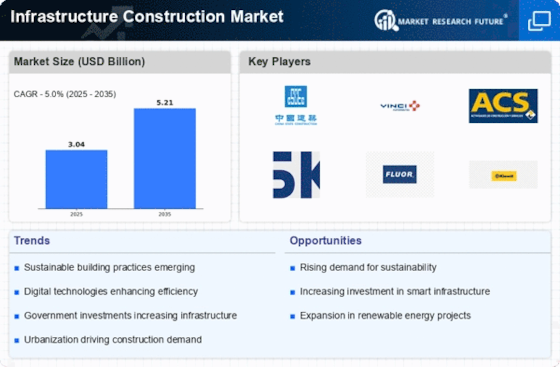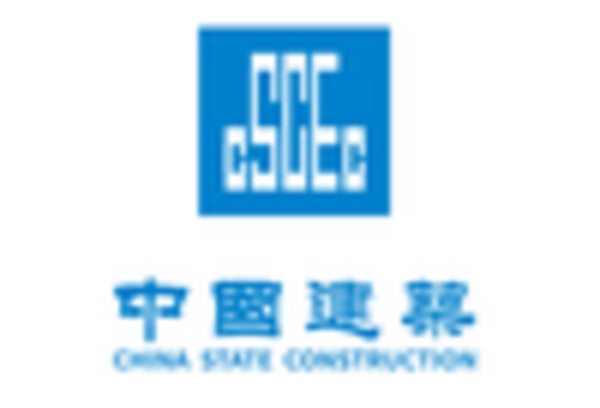Market Analysis
In-depth Analysis of Infrastructure Construction Market Industry Landscape
The market dynamics of infrastructure construction are shaped by various factors that influence the supply, demand, and overall trends within the construction and engineering sectors. Infrastructure construction encompasses a broad spectrum of projects, including roads, bridges, airports, railways, water supply systems, and energy facilities. Understanding the market dynamics involves examining elements such as economic conditions, government policies, technological advancements, sustainability considerations, and competitive forces.
Economic conditions play a pivotal role in the market dynamics of infrastructure construction. The level of economic growth, public and private investment, and overall financial stability directly impact the demand for infrastructure projects. During periods of economic expansion, there is typically increased funding for public infrastructure development, as governments and private entities seek to capitalize on growth opportunities. Conversely, economic downturns may lead to reduced infrastructure spending as financing becomes more challenging. The cyclical nature of infrastructure construction makes economic conditions a primary driver in shaping market dynamics.
Government policies and public initiatives are key influencers in the market dynamics of infrastructure construction. Government commitments to infrastructure development, funding allocations, and policy frameworks for public-private partnerships significantly impact the volume and nature of construction projects. Policies related to sustainability, resilience, and smart infrastructure also play a role in shaping project specifications and construction practices. Companies operating in the infrastructure construction market must stay informed about government policies to anticipate market trends and align their strategies with public priorities.
Technological advancements are driving forces in the market dynamics of infrastructure construction. Innovations in construction materials, design software, project management tools, and construction methods contribute to increased efficiency, reduced costs, and enhanced project outcomes. The adoption of Building Information Modeling (BIM), drones, and automation in construction processes improves precision and safety. Infrastructure construction companies that embrace technological advancements gain a competitive advantage by offering innovative solutions that meet the evolving needs of clients and regulators.
Sustainability considerations are increasingly shaping the market dynamics of infrastructure construction. With a growing focus on environmental responsibility and climate resilience, infrastructure projects are expected to meet stringent sustainability standards. Green building practices, energy-efficient designs, and the use of eco-friendly materials are becoming integral to infrastructure construction projects. Companies that prioritize sustainable construction practices not only contribute to environmental goals but also position themselves favorably in a market that values responsible and resilient infrastructure.
Competitive forces are a significant aspect influencing the market dynamics of infrastructure construction. The industry is marked by competition among construction firms, engineering companies, and project management consultants. Differentiation through expertise, project delivery capabilities, and innovative solutions becomes essential for companies to secure contracts and maintain a competitive edge. The ability to adapt to changing market conditions, leverage technology, and provide value-added services is crucial for success in the competitive infrastructure construction market.
Fluctuations in commodity prices, regulatory changes, and geopolitical factors can present challenges and opportunities in the market. The cost of construction materials, such as steel, concrete, and asphalt, is subject to market volatility, impacting project budgets. Regulatory changes, including permitting requirements and environmental standards, can influence project timelines and costs. Geopolitical factors, such as trade tensions and international relations, may affect the availability and pricing of construction materials. Companies in the infrastructure construction market must employ strategic planning and risk management strategies to navigate these challenges effectively.


















Leave a Comment